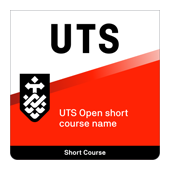Key benefits of this course
By the completion of this social planning and community development course, you should have:
- Increased knowledge and understanding of social planning and community development theory, good practice and their role in decision making
- Applied community development approaches - such as social impact assessment, social infrastructure analysis, ‘Safety by Design’, and stakeholder engagement - to local scenarios
- Capacity to think strategically and practically about place and communities, using social, cultural, economic, environmental, and leadership drivers of change, working collaboratively with colleagues with colleagues and other professions
- Acquired project planning methods, tools and techniques that reflect social justice, ethics and Quadruple Bottom Line concepts required in local government settings
- Analysed current challenges and barriers, plus personal views and values and their impact on professional practice
- Acquired skills in impactful communications and report writing relevant to social planning and community development decision making.
Digital badge and certificate

A digital badge and certificate will be awarded following the successful completion of any necessary tasks or assessments to demonstrate acquired learning of the short course or for meeting attendance and/or participation requirements.
Learn more about UTS Open digital badges.
Course outline
This social planning and community development course is comprised of four interlinked modules, each delivered over a day:
Module 1: Introduction to Social Planning and Community Development
This module covers the key theory and good practice principles that underpin quality social planning and community development. It includes discussion of:
- Legislative and Regulatory Requirements, including local government IP&R issues
- Social justice principles and the role of Quadruple Bottom Line thinking
- Effective engagement and decision making principles
- Different types of planning and key considerations including common community, recreational and infrastructure activities, plus safety, local conflicts, and crisis management.
Module 2: Social Policy, Planning and Project Management
This module introduces effective project management approaches to delivering quality social and community outcomes. It includes discussion of:
- Practice and management of specific social planning and community development activities
- Introduction to social planning research
- Introduction to effective stakeholder engagement
- Working with communities and managing change in a dynamic environment.
Module 3: Social Planning Methods, Tools and Techniques
This module covers specific approaches, tools and techniques for working at the local level, with specific reference to using evidence based research and engagement techniques. It includes discussion of:
- Designing, implementing and managing one off or ongoing social planning or community development initiatives
- Common data sources and how to use in community focused social research.
Module 4: Place Based Approaches, Measuring Impact and Influencing Decision Making
This module will draw together the theory and practice across the three previous modules and applies the learning to place-based scenarios. It includes discussion of:
- Social Planning and Community Development measurement, evaluation and learning
- Community Indicators
- Communicating with Impact and writing for decision makers.
Price
Full price: $3,089 (GST-free)*
*Price subject to change. Please check price at time of purchase.
Discounts are available for this course. For further details and to verify if you qualify, please check the Discounts section.
Discounts
Discounts are available for this course as follows:
- 10% discount for UTS staff, alumni and students
Discounts cannot be combined and only one discount can be applied per person per course session. Discounts can only be applied to the full price. Discounts cannot be applied to any offered special price.
How to enrol and obtain your UTS staff, alumni or student discount
Please contact the team at support@open.uts.edu.au with either your staff or student number.
If you are eligible for a UTS alumni or student discount, please ensure you have provided your UTS student number during checkout.
If you are an alumni and have forgotten your UTS student number, email support@open.uts.edu.au with your full name, UTS degree and year of commencement.
Course delivery
This short course will be delivered as an interactive workshop consisting of an instructor-led lecture, group and individual activities. This training approach allows participants to work through concepts introduced by the trainer in an application-focused teaching environment. Participants will challenge their understanding of the concepts and consider their application once back in their individual workplace.
In-house training solutions
Social Planning and Community Development can also be customised and/or delivered in-house. Find out more.
Enrolment conditions
Course purchase is subject to UTS Open Terms and Conditions.
Contact us
For any questions on enrolment or payment, please email support@open.uts.edu.au
If you have a specific question on course content or requirements, please email ippg.learning@uts.edu.au


















